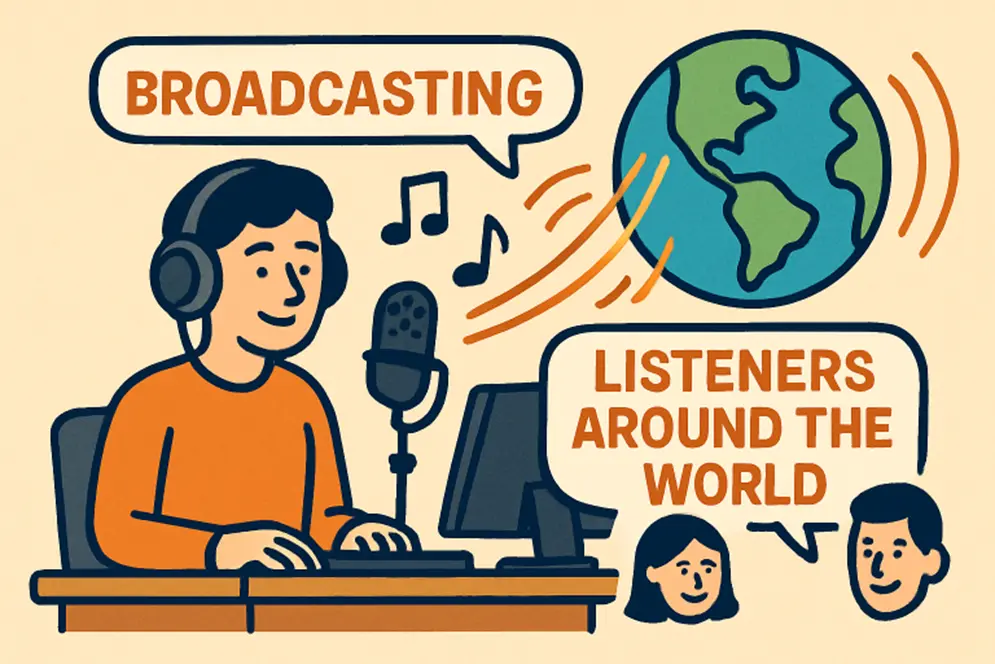Introduction
Launching an online radio station offers a dynamic and creative way to reach a global audience with your own unique content, whether that’s music, talk shows, or podcasts. In today’s digital era, anyone with passion and planning can carve out their place in the world of internet broadcasting. This guide is tailored to walk you through the crucial steps, from setting your vision to ensuring legal compliance and achieving audience growth. For a step-by-step breakdown, check out the comprehensive guide on how to start a radio station online, which offers in-depth instructions and tools to begin.
Before launching, it’s essential to understand the various formats of online radio and know which best suits your ambitions and expertise. By planning your content, preparing your broadcasting setup, and learning the ins and outs of legal requirements, you’ll build a strong foundation for a successful station. Knowing how to start a radio station online is more accessible than ever—equipping yourself with the right knowledge ensures you avoid common pitfalls as you get started.
Types of Online Radio Stations
Choosing the type of online radio station that aligns with your vision is a crucial early decision. The main formats include:
- Live Broadcasting: Where DJs or hosts conduct real-time shows, often delivering music, interviews, and commentary directly to listeners as it happens.
- Automated Broadcasting: This approach relies on scheduling pre-recorded segments or playlists, making it ideal for running your station around the clock with minimal manual intervention.
- Podcasting: On-demand audio shows that listeners can download or stream at their convenience, favoring niche content and serialized storytelling.
Your choice will influence your technical setup, time commitment, and the type of audience you draw. Evaluating your resources and interests will set the stage for long-term sustainability.
Planning Your Content and Programming
Creative and consistent content is the heart of a thriving online radio station. Begin by identifying your niche—a particular genre, theme, or viewpoint that distinguishes your station. Crafting a regular programming schedule ensures your audience knows when to tune in for their favorite shows or music blocks.
- Defining Your Niche: Research what’s missing in the existing radio landscape or what you’re most passionate about. This could be emerging music, local news, or special interest talk shows.
- Creating a Schedule: Whether you’re hosting daily morning talk shows, weekly themed playlists, or monthly interviews, a published calendar helps set listener expectations.
- Engaging Your Audience: Interactive elements, such as call-ins, social media polls, or live request hours, keep listeners involved and encourage return visits.
High-quality and reliable content not only attracts but also maintains a loyal base over time.
Setting Up Your Broadcasting Equipment and Software
Quality equipment is essential for professional-sounding broadcasts. At a minimum, invest in a good microphone and a reliable computer. Broadcasting software, such as Mixxx or BUTT, allows you to mix audio, automate playlists, and control your shows. To bring your stream to listeners worldwide, sign up for a robust online radio hosting platform like Zeno.fm or similar services.
- Microphones: Condenser and dynamic microphones offer clear, studio-quality sound, suitable for different budget levels.
- Computer: Any modern desktop or laptop can typically handle broadcasting, but ensure it’s reliable enough for uninterrupted running.
- Broadcasting Software: Consider user reviews and features relevant to your broadcast plans when choosing software.
- Streaming Service: Select a platform that offers reliability, support, and detailed analytics to help grow your station.
Upgrading your equipment over time reflects your station’s growth and commitment to excellence, attracting both casual listeners and dedicated fans.
Understanding Legal Requirements and Licensing
Navigating the legal landscape is one of the most important steps in building a legitimate station. In the U.S., music streaming typically requires performance licenses from organizations such as ASCAP or BMI, ensuring that artists and composers are fairly compensated for their work.
Laws can differ internationally, so thoroughly research requirements in your broadcasting region. Streaming music without proper licensing can lead to costly legal hassles. Additional guidance on online broadcast regulations is available through resources like Billboard’s explainer on music licensing.
Promoting Your Online Radio Station
Growing your station goes beyond great content; effective promotion amplifies your reach and builds community. Social media platforms like Facebook, Instagram, and Twitter let you interact with listeners in real time, announce upcoming shows, and share behind-the-scenes glimpses.
- Social Media Marketing: Share regular posts, live updates, and listener polls to drive engagement.
- Collaborations: Partner with musicians, other broadcasters, and influencers for cross-promotional events that introduce your station to new audiences.
- SEO Optimization: Use targeted keywords on your website and show pages to improve your search engine rankings, making it easier for new listeners to discover you.
- Community Engagement: Get involved in relevant online forums, music communities, and local events to generate organic buzz around your station.
Creative promotion strategies, coupled with consistent interaction, help sustain momentum and establish a loyal fan base. Resources like The Verge’s guide to starting an internet radio station offer additional insights into building and promoting your brand online.
Establishing your own online radio station is a rewarding endeavor that blends creativity, technology, and community. With careful planning, the right tools, and ongoing engagement, you can build a station that entertains and informs listeners around the world.
Conclusion
Launching your own online radio station is more than just a hobby—it’s an opportunity to create a unique platform that broadcasts your passion to a global audience. By focusing on a clear concept, securing the right equipment and licenses, and consistently engaging with your listeners, you can build a successful and sustainable station. The journey from a great idea to a thriving online hub is well within your reach, so take a leap and share your voice with the world.
Also Read

